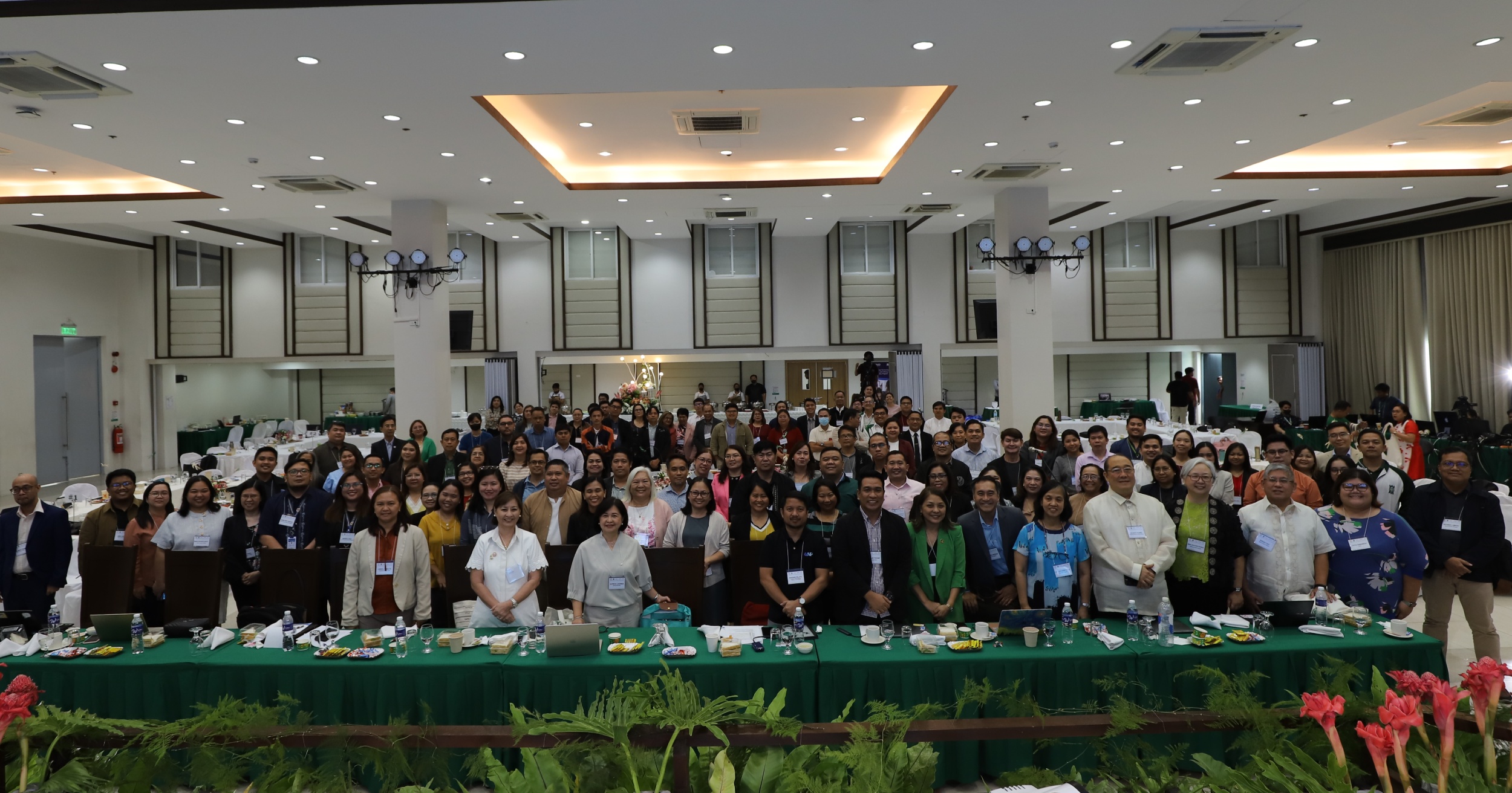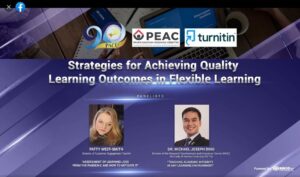In a groundbreaking initiative, the Philippine Association of Colleges and Universities (PACU) masterminded “Harnessing Artificial Intelligence (AI) Potential: A Policy Writeshop on Acceptable Use in Education” at Our Lady of Fatima University’s (OLFU) RISE Tower on 4 March 2024.
This pivotal assembly aimed to shape the future of artificial intelligence (AI) integration in educational institutions.
Confluence of Minds: PACU Representatives and Experts
The writeshop witnessed an impressive turnout, with a total of 108 onsite participants and over 90 attendees via Zoom, emphasizing the nationwide interest in AI policy development.
The event brought together key stakeholders, including representatives, members, and officials from educational institutions across the country.
Preceding the program was an engaging audio-visual presentation (AVP) where PACU officials candidly shared their perspectives on the emergence of technology, particularly AI, and its impact on academia and higher education.
The solemnity of the occasion was underscored by the OLFU Chorale, who rendered a heartfelt doxology and led the attendees in singing the Philippine National Anthem.
President Enriquez elated that OLFU hosts first-ever PACU policy writeshop
Dr. Caroline Marian Enriquez, President of OLFU and Chairperson of the PACU Committee on Institutional Quality Improvement (CIQI), delivered the event’s welcome remarks.
Enriquez emphasized the need for sound policies to navigate the challenges posed by AI, adding that AI is here to stay and students must be well-informed about both its promises and pitfalls.
A proactive step: Prof. Vicente Antonio Pijano III’s rationale
Prof. Vicente Antonio Pijano III, a distinguished member of the CIQI and Programs Committee, provided a comprehensive rationale for the writeshop.
The academic leader described the affair as a proactive approach toward responsible AI use in education. The fastidious exchange would thoughtfully compartmentalize several points, key areas include:
Ethical and Responsible Use: Participants engage in discussions about the ethical considerations surrounding AI deployment in educational settings. Balancing innovation with ethical boundaries would later be the central theme.
Clear Policy Framework: Experts delve into the creation of a clear and adaptable policy framework. This framework would guide institutions in harnessing AI’s potential while safeguarding student rights and privacy.
Keynote Addresses: Esteemed experts share insights on AI trends, best practices, and case studies, inspiring attendees to envision AI as a tool for positive transformation.
Active Engagement: Workshops and breakout sessions encourage active participation. Attendees collaborate on defining guidelines, identifying challenges, and proposing solutions.
Customizable Policy Template: A practical outcome of the writeshop is a customizable policy template. Academic institutions may tailor this template to their unique contexts, ensuring responsible AI integration.
Keynote Addresses by Visionaries
The stage was later set for comprehensive discussions as two distinguished keynote speakers took the floor.
Dr. Wesley Teter, a Research Fellow at the University of Tokyo’s Center for Advanced School Education and Evidences-based Research, delivered an enlightening address. His insights on AI’s transformative potential resonated with the audience, emphasizing the need for a balanced approach to its adoption.
Dr. Ethel Agnes P. Valenzuela, Chairman of the Commission on Higher Education (CHED) Technical Working Group (TWG) on Lifelong Learning, followed suit. Her address underscored the importance of ethical considerations, data privacy, and the alignment of AI policies with educational goals.
Expert Facilitators: Guiding the Policy Blueprint
The heart of the writeshop laid in the hands of seasoned facilitators, each a luminary in their respective field:
Dr. Maria Mercedes Rodrigo: The Head of the Ateneo Laboratory for Learning Sciences delved into emerging AI technologies that provide varied services, emphasizing transparency and accountability to meet its ethical application in academe.
Mr. Francis Jim Tuscano: As an EdTech Coach at Xavier High School, he explored administrative support and workload efficiency through AI-driven solutions. AI’s potential to streamline administrative tasks and improve educators’ work efficiency took center stage.
Mr. Sherwin Pelayo: The Executive Director of the Analytics and Artificial Intelligence Association of the Philippines effectively tackled safeguarding and data management involving AI integration.
Prof. Cheryl Peralta: The Vice Rector for Academic Affairs at the University of Santo Tomas (UST) championed curriculum integration, envisioning AI as an empowering tool for educators.
Engr. Elmar Francisco: The chief of IRTC Training Extension and Technical Services at the Technological University of the Philippines navigated the complex landscape of legal compliance and acceptable AI use. The facilitators grappled with aligning AI practices with existing laws and regulations in the country.
At the helm of this in-depth discourse was Prof. Antonio who served as the lead facilitator.
A Triumph for Education: The Customizable AI Policy Template
With six separate groups, the sessions deepened in the writeshop proper where a customizable AI policy template had been eyed to emerge — a blueprint that will soon be presented at the AI Summit by the University of Santo Tomas on March 18-19, 2024.
This comprehensive template is sort of a promise to shape AI integration in Philippine education, ensuring a future where technology serves as an ally in the pursuit of knowledge.
Assisted by OLFU as the host, PACU collaborated with the Private Education Assistance Committee (PEAC) and USAID – RTI International UPSKILL Program in the success of its pilot policy writeshop. – Raymond Lumagsao

